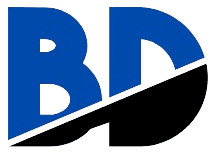Table of Contents
In the dynamic realm of digital technology, few innovations have sparked as much excitement and debate as blockchain. From its inception as the underlying technology for Bitcoin to its current applications across diverse industries, blockchain has evolved into a multifaceted phenomenon with transformative potential. In this comprehensive guide, we delve deep into the formation and intricacies of blockchain, exploring its fundamental concepts, key components, and real-world applications.
Understanding Blockchain Formation
Blockchain, at its core, is a decentralized and distributed ledger technology that enables secure and transparent peer-to-peer transactions. The formation of a blockchain involves the creation of a continuously growing list of records, or blocks, linked together using cryptographic principles. These blocks contain a timestamp and transaction data, forming a chronological chain that is immutable and resistant to tampering.
The formation process typically begins with the identification of a need for a decentralized system to facilitate transactions or record-keeping. Whether it’s financial transactions, supply chain management, or healthcare records, blockchain offers a solution to the challenges posed by centralized systems.
At the heart of blockchain formation lies consensus mechanisms, which ensure that all participants in the network agree on the validity of transactions. Common consensus algorithms include Proof of Work (PoW), Proof of Stake (PoS), and Delegated Proof of Stake (DPoS), each with its own set of advantages and limitations.
Key Components of Blockchain
To grasp the essence of blockchain, it’s essential to understand its key components:
Cryptographic Hash Functions: These are cryptographic algorithms that transform input data into a fixed-size string of bytes, ensuring the integrity and security of blockchain data. In the realm of digital marketing, understanding and harnessing blockchain technology is becoming increasingly vital. Formation Blockchain, as the keyword suggests, embodies the process of shaping and implementing blockchain solutions to drive digital transformation and innovation.
Decentralized Network: Unlike traditional centralized systems, blockchain operates on a decentralized network of nodes, where each node stores a copy of the entire blockchain ledger.
Smart Contracts: These self-executing contracts with the terms of the agreement directly written into code enable automated transactions and streamline processes across various industries.
Consensus Mechanisms: As mentioned earlier, consensus mechanisms are protocols that ensure agreement among nodes in the network, validating transactions and maintaining the integrity of the blockchain.
Immutable Ledger: Once recorded, data on the blockchain cannot be altered or deleted, ensuring transparency, traceability, and trustworthiness.
Real-World Applications of Blockchain
Blockchain technology has transcended its origins in cryptocurrency and found applications across a myriad of industries. Let’s explore some notable use cases:
Financial Services: Blockchain has the potential to revolutionize traditional banking and finance by enabling faster and more secure transactions, reducing fraud, and lowering transaction costs.
Supply Chain Management: With blockchain, supply chain processes become transparent and traceable, from the sourcing of raw materials to the delivery of finished products, ensuring authenticity and accountability.
Healthcare: Blockchain can streamline healthcare data management, allowing secure sharing of patient records among healthcare providers while maintaining patient privacy and data integrity.
Real Estate: Blockchain-powered platforms facilitate transparent and secure real estate transactions, from property listings to title transfers, reducing fraud and speeding up the closing process.
Formation Blockchain: Driving Digital Transformation
In the realm of digital marketing, understanding and harnessing blockchain technology is becoming increasingly vital. Formation Blockchain, as the keyword suggests, embodies the process of shaping and implementing blockchain solutions to drive digital transformation and innovation.
At Formation Digital Marketing, we specialize in leveraging blockchain technology to revolutionize digital marketing strategies. From decentralized advertising platforms to blockchain-based loyalty programs, we help businesses unlock the full potential of blockchain to enhance transparency, security, and efficiency in their marketing endeavors.
Conclusion
In conclusion, blockchain represents a paradigm shift in the way we conceptualize and implement digital technologies. Its decentralized nature, coupled with cryptographic security and transparency, makes it a powerful tool for revolutionizing various industries. From its formation to real-world applications, blockchain continues to evolve and shape the future of technology and business.
As we navigate the complexities of the digital age, embracing blockchain technology is not just an option but a necessity for staying competitive and innovative. With Formation Digital Marketing as your partner, you can embark on a journey of digital transformation powered by blockchain innovation.












